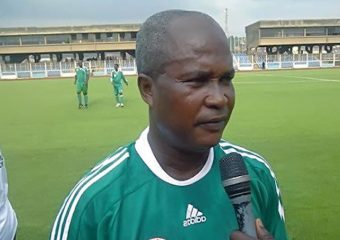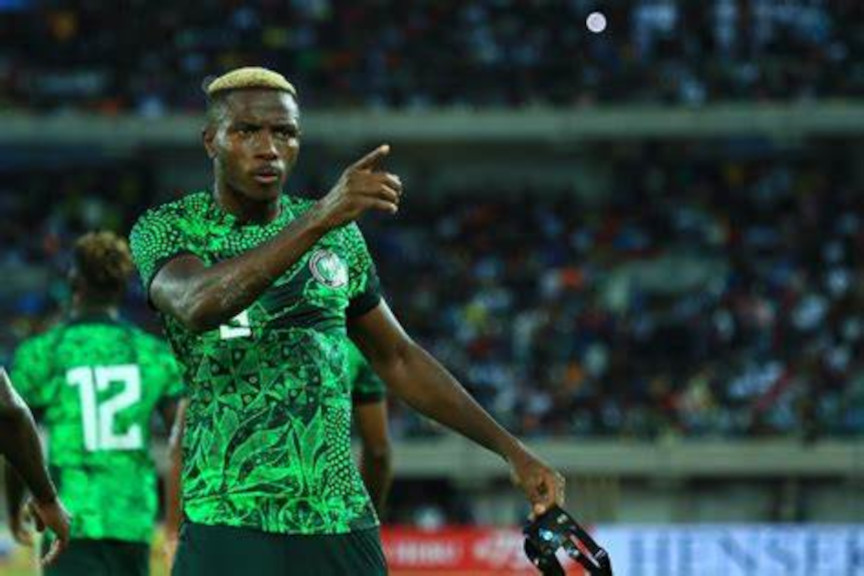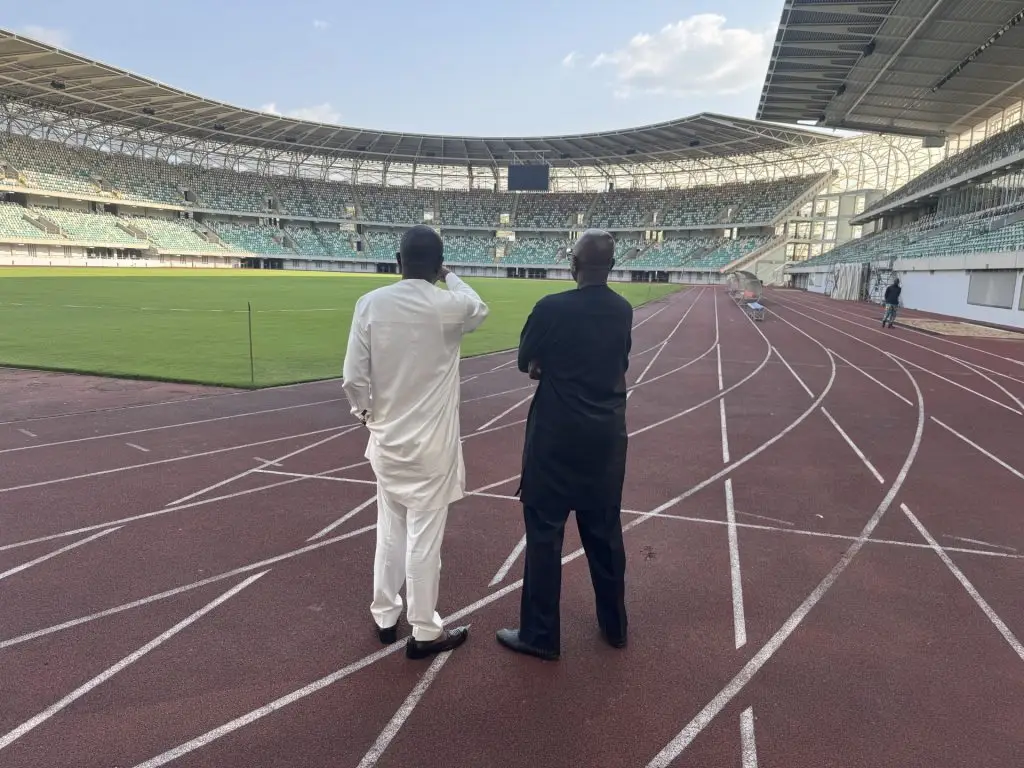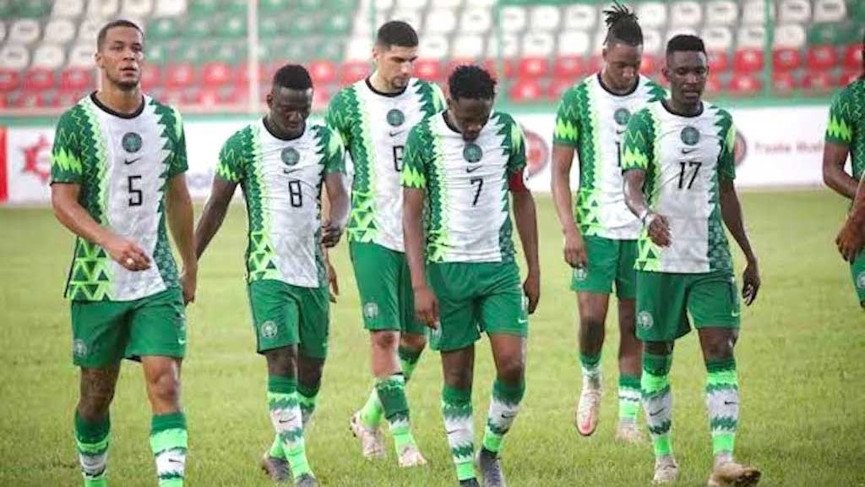I call him ‘Youngest Millionaire’.
It is a nickname that I gave him following our team’s success at the 1980 African Cup of Nations.
We had received a lot of gifts that must have amounted to a tidy sum. Being the youngest player in the squad at the time (he was 18 years of age) Henry Nwosu earned the unofficial title, ‘Youngest Millionaire’
For 42 years since then, Henry and I have had a very good but distant relationship. We never socialised together even when we were neighbours in the FESTAC houses the Federal Government gave each member of the 1980 squad but remained friendly to each other whenever and wherever we met along life’s circuit.
When we were in the national team, everyone respected the young midfield player because of his commanding presence on the field and how he marshalled the midfield. He was small in stature, but had the ability to conduct affairs in the mid-field like a General in the army, dictating the pace and tempo of his teams’ performance. Like Stephen Keshi, he was a born leader on the field, but unlike him, he was less so outside it. He packed power in both feet. He could dribble, pass the ball and shoot very accurately with either foot.
After his career as a player, except for when Chief Festus Onigbinde invited him to join his consortium of coaches to the Korea/Japan World Cup in 2002, Henry has not been as visible and as successful as a football coach.
Unfortunately, this last week, the ’Youngest Millionaire’, a Member of the Order of the Niger, MON, has been in the news. He has been hospitalised and is receiving treatment for a heart-related ailment. He obviously now needs a higher level of medical attention. Having exhausted his personal financial resources, his matter has been brought to the public domain by some concerned friends, appealing for financial support for the Nigerian hero.
Although some Nigerians are already responding by making financial commitments and donations to him, Henry Nwosu’s situation once again brings to the fore the issue of the welfare of retired athletes. Nigeria does not seem able to provide a permanent solution. Even the Minister of Sports, Sunday Dare, has had to intervene on an ad-hoc basis on several similar cases of sick or dying sports persons. Without an institutionalised process in place to deal with the matter of this very important segment of society – retired Sports Heroes, the lamentation of a country failing its heroes will continue, and this ugly public outcry for help will sustain.
The Nigerian sports space is littered with the stories of retired athletes going through ‘hell’ in their old age.
Without an institutionalised welfare system in place, a safety net with which all retired sportsmen and women can be ‘caught’ in the twilight zone of their lives, the story of Nigerian sports has remained that of retired sports heroes wracked by poor health and poverty and abandoned to languish at the gates of old age.
The numbers are increasing astronomically, and the stories getting more pitiful and gruesome.
How does it work in more developed sports cultures?
In Europe, for football players the answer has been found in an international organisation founded, funded and run by the players themselves, retired and active. FIFPRO was specifically created by the players for the players as an independent organisation to which players unions around the world can subscribe and become members.
In Europe, where its headquarters are domiciled, FIFPRO has become a huge, powerful and very rich organisation supported by the statutory contributions of professional players in all the various clubs in Europe, and through sponsorships of their various programmes.
Nigeria’s retired players have not been beneficiaries of this available medium of support (except for a brief period of about one year) because of the in-fighting going on amongst the retired players and between the various associations a few retired players have formed through the decades.
Unable to present a united front, FIFPRO withdrew its initial recognition of the defunct National Association of Nigerian Footballers, NANF, and insisted that the Nigerian Football Federation must authenticate the Players association that FIFPRO will deal with in order to restore Nigeria’s membership.
The NFF leadership seized the opportunity to suppress the Players Association by denying it any recognition, weaponising it as a tool to be used and discarded during elections into the Executive Committee.
What can be done to resolve the issue?
I have just returned from a short visit to Ghana where I met with the leaderships of the two football unions of players in the country, the Union of retired ex-international players headed by winner of the first Africa’s Best Player of the Year Award, Ibrahim Sunday, and the Professional Footballers Association of Ghana, PFAG, headed by former Captain of the Black Stars, Samuel Kufour.
Both organisations exist side by side, each pursuing their different objectives, but with one allowing the bigger of the two unions, PFAG, to register with FIFPRO without rancour. Meanwhile, both organisations enjoy the benefits that come through FIFPRO to all players, active and retired.
Needless to go into the finer details of my visitation. Ghana is only a stone’s throw from Nigeria. The country’s example can easily become a model not just for Nigeria but for several other African countries that are not benefiting from their non-participation in FIFPRO as a result of petty internal politics as in Nigeria’s case.
The fighting factions in Nigeria, have now been able to largely resolve their differences, and have come closest to having a common front in a newly formed organisation under the leadership of former international player, Tijani Babangida, called Professional Footballers Association of Nigeria, PFAN. PFAN must now secure the recognition of the Nigeria Football Federation and quickly get back on board the FIFPRO ‘train’ . That is the surest way of being independent of government and the Nigeria Football Federation, and of having access to the kind of internationally available funds that can make them very functional and able to meet the increasing needs of retired players.
In the last few years, more serious effort has been made to settle disagreements and birth a united players’ organisation.
Until a new faction was created with the assistance of the last federation under Amaju Pinnick, and used as a political tool during the last elections, more serious effort was ongoing to settle the disagreements between the feuding players unions and establish a single front. That last hurdle must now be removed for any progress to be made to access FIFPRO support and funding.
Clubs and players in the domestic leagues have also not helped matters with their lackadaisical attitude to the players’ association, by not registering and paying to subscribe as members. This attitude emboldens the clubs not to pay much attention to the association that should be protecting and promoting players’ interests.
Meanwhile, Henry Nwosu’s case brings to the front burner once again, the issue of the welfare of players, those playing as well as those retired, and also the urgency now required to get the PFAN registered again in FIFPRO. That is the key to the issue of Welfare of Nigeria’s retired and active players. Success with FIFPRO will serve as template for other sports.
I call on Philanthropic Nigerians to come and support a national treasure that needs help, urgently. PFAN shall tell you how very soon.









Latest Comments